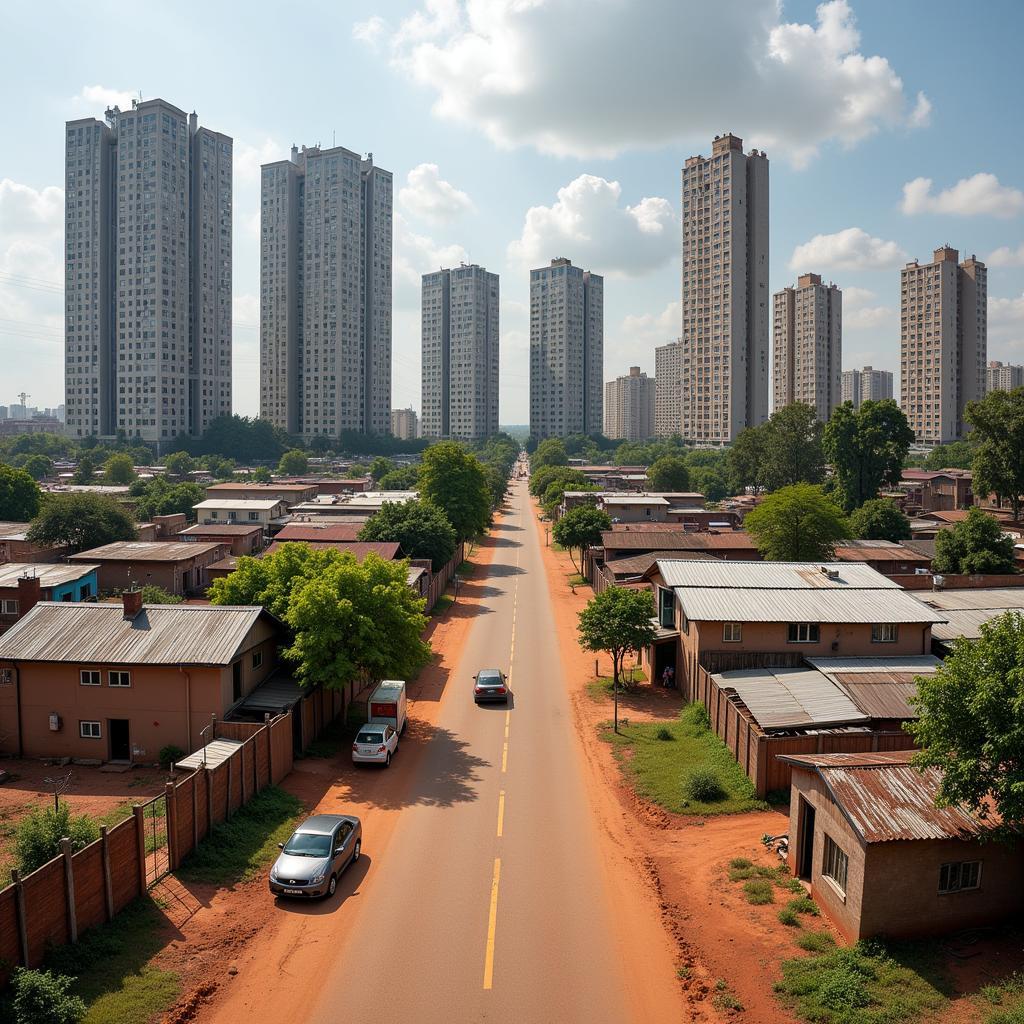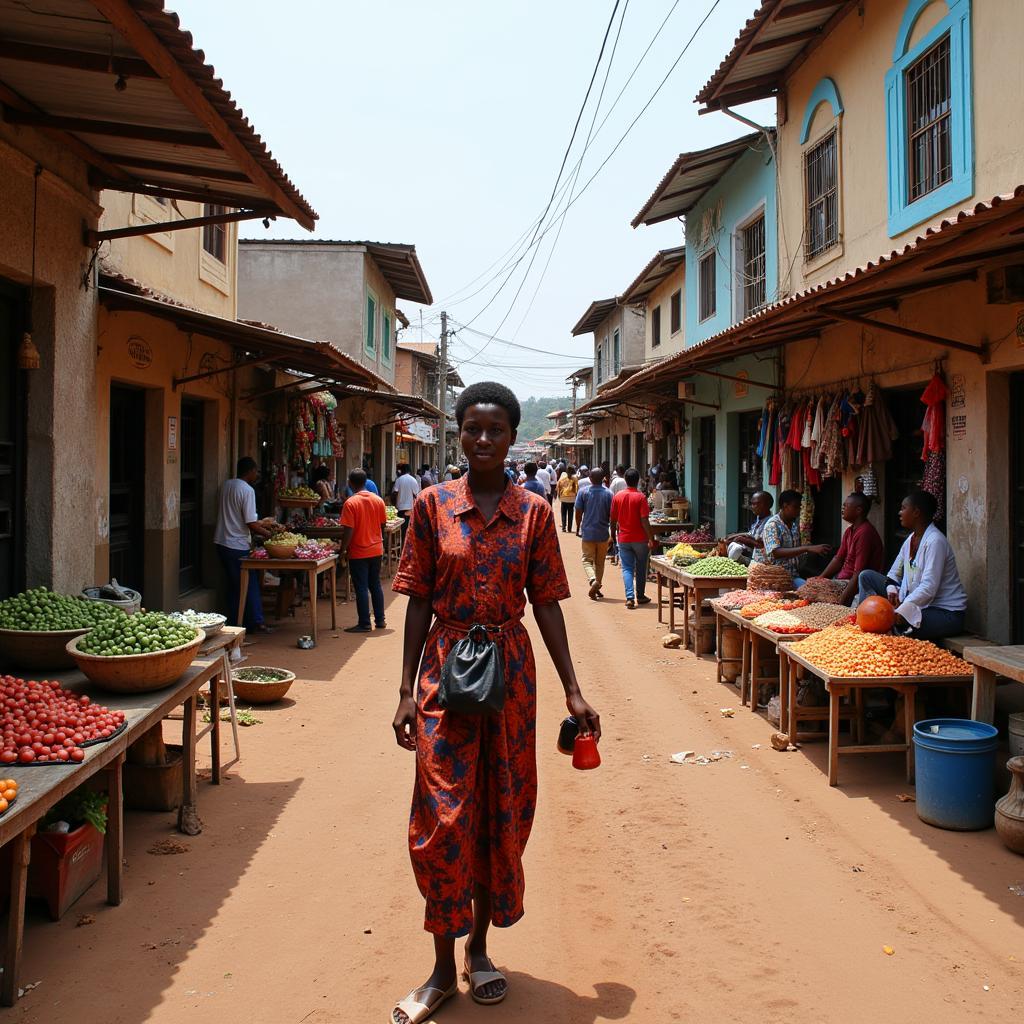African Cities and the Development Conundrum
African cities are experiencing rapid growth, presenting both immense opportunities and complex challenges. This urban expansion fuels the development conundrum: how to harness the potential of these burgeoning metropolises while addressing the persistent issues of poverty, inequality, and inadequate infrastructure. Navigating this intricate landscape requires innovative solutions, strategic planning, and a deep understanding of the unique context of each city.
The Promise and Peril of Urban Growth
The allure of opportunity draws millions to African cities each year. These urban centers are seen as hubs of innovation, education, and economic advancement. However, this rapid influx of people often outpaces the capacity of existing infrastructure and services, leading to overcrowded slums, strained resources, and increased social tensions. This is the heart of the African Cities And The Development Conundrum: balancing the positive aspects of growth with the negative consequences.
Infrastructure Gaps and the Development Conundrum
One of the most pressing challenges facing African cities is the lack of adequate infrastructure. Insufficient housing, inadequate sanitation systems, and limited access to clean water contribute to poor health outcomes and hinder economic development. Investing in infrastructure is crucial to unlocking the full potential of these cities and addressing the development conundrum.
What are the key infrastructure challenges facing African cities? Limited access to clean water and sanitation, inadequate transportation networks, and insufficient energy supply are among the most critical. Addressing these challenges requires substantial investment and innovative approaches.
 African city infrastructure challenges: water access, sanitation, and transportation.
African city infrastructure challenges: water access, sanitation, and transportation.
Economic Opportunities and the Informal Sector
While formal employment opportunities are often limited, the informal sector plays a vital role in the economies of African cities. Street vendors, small businesses, and informal traders provide essential goods and services, creating livelihoods for millions. However, this sector often lacks regulation and support, leaving workers vulnerable and hindering economic growth. How can we support the informal sector while promoting formal job creation? This is a key aspect of the development conundrum.
Dr. Amina Omar, an urban planning expert based in Nairobi, Kenya, observes, “The informal sector is not a problem to be solved, but a resource to be harnessed. Providing access to credit, training, and market opportunities can empower informal workers and contribute to sustainable economic development.”
 Opportunities within the informal sector in African cities: street vendors and small businesses.
Opportunities within the informal sector in African cities: street vendors and small businesses.
Social Inclusion and Equity
The rapid growth of African cities often exacerbates existing inequalities. Disparities in access to education, healthcare, and housing can create social divisions and undermine social cohesion. Addressing these inequalities is crucial to building inclusive and sustainable cities. How can we ensure that the benefits of urban growth are shared equitably? This is another crucial dimension of the development conundrum.
The Role of Governance and Policy
Effective governance and sound urban planning are essential to addressing the development conundrum. Transparent and accountable institutions, participatory decision-making processes, and data-driven policies can help to ensure that urban development is inclusive and sustainable.
Professor Kwame Nkrumah, a renowned economist from Accra, Ghana, states, “Good governance is not just about efficiency, it’s about equity. It’s about ensuring that everyone has a voice and that the benefits of development are shared by all.”
 The role of governance and policy in addressing urban development challenges in African cities.
The role of governance and policy in addressing urban development challenges in African cities.
Conclusion
African cities stand at a crossroads. The rapid pace of urbanization presents both unprecedented opportunities and significant challenges. By addressing the development conundrum through strategic investments in infrastructure, support for the informal sector, and a commitment to social inclusion, African cities can unlock their full potential and become engines of sustainable and equitable growth. This requires a collaborative effort between governments, civil society, and the private sector to create thriving urban centers that benefit all residents.
FAQ
- What is the development conundrum facing African cities?
- What are the key infrastructure challenges in African cities?
- How can the informal sector contribute to economic growth?
- Why is social inclusion important for sustainable urban development?
- What role does governance play in addressing urban challenges?
- How can we ensure equitable access to resources in African cities?
- What are some innovative solutions to urban development challenges?
Do you have other questions or need specific advice? Check out our articles on [link to relevant article 1] and [link to relevant article 2].
Need help planning your trip to an African city or want to learn more about investing in African urban development? Contact us! Phone: +255768904061, Email: [email protected], or visit our office in Mbarali DC Mawindi, Kangaga, Tanzania. We have a 24/7 customer service team ready to assist you.


